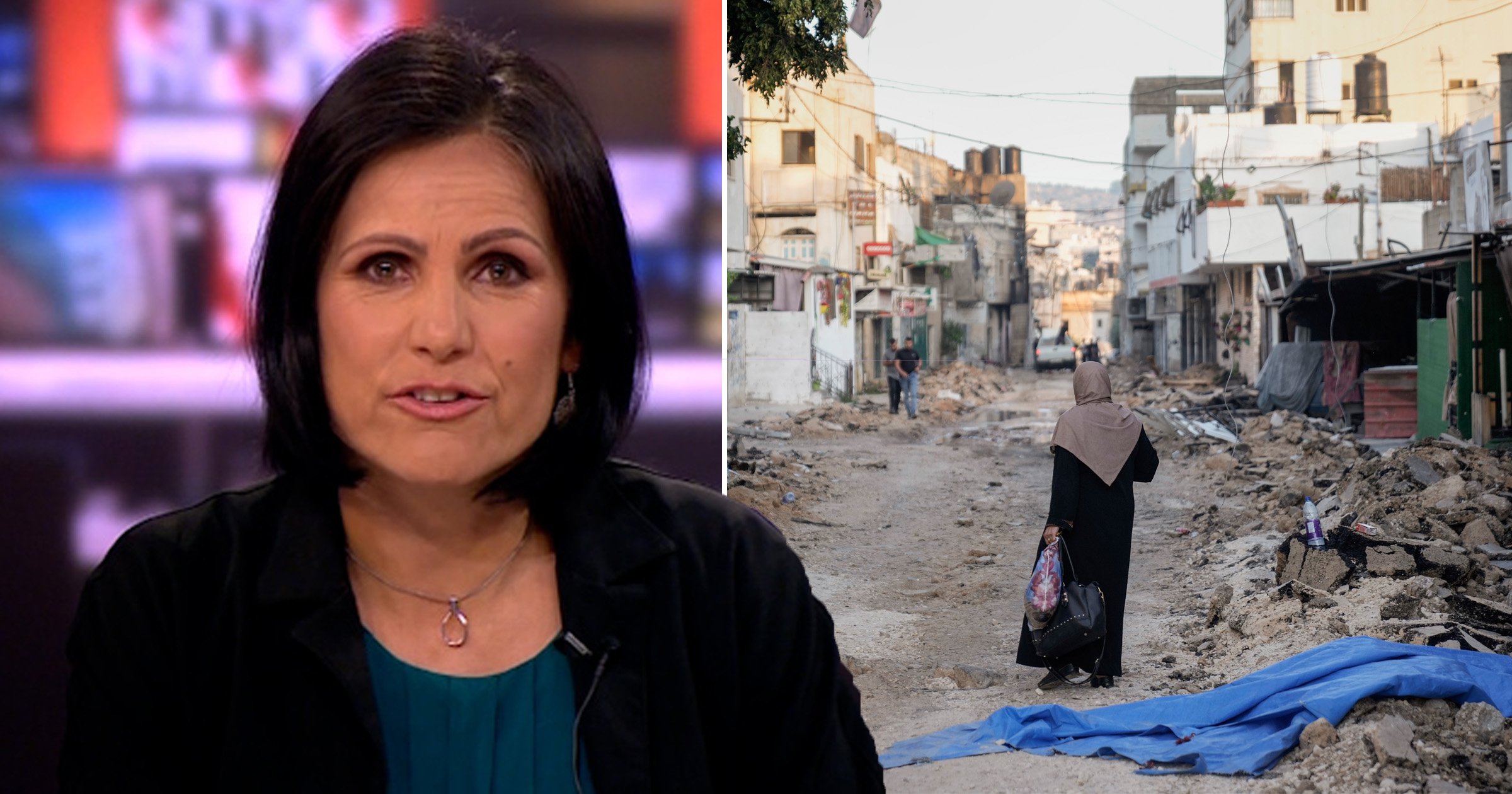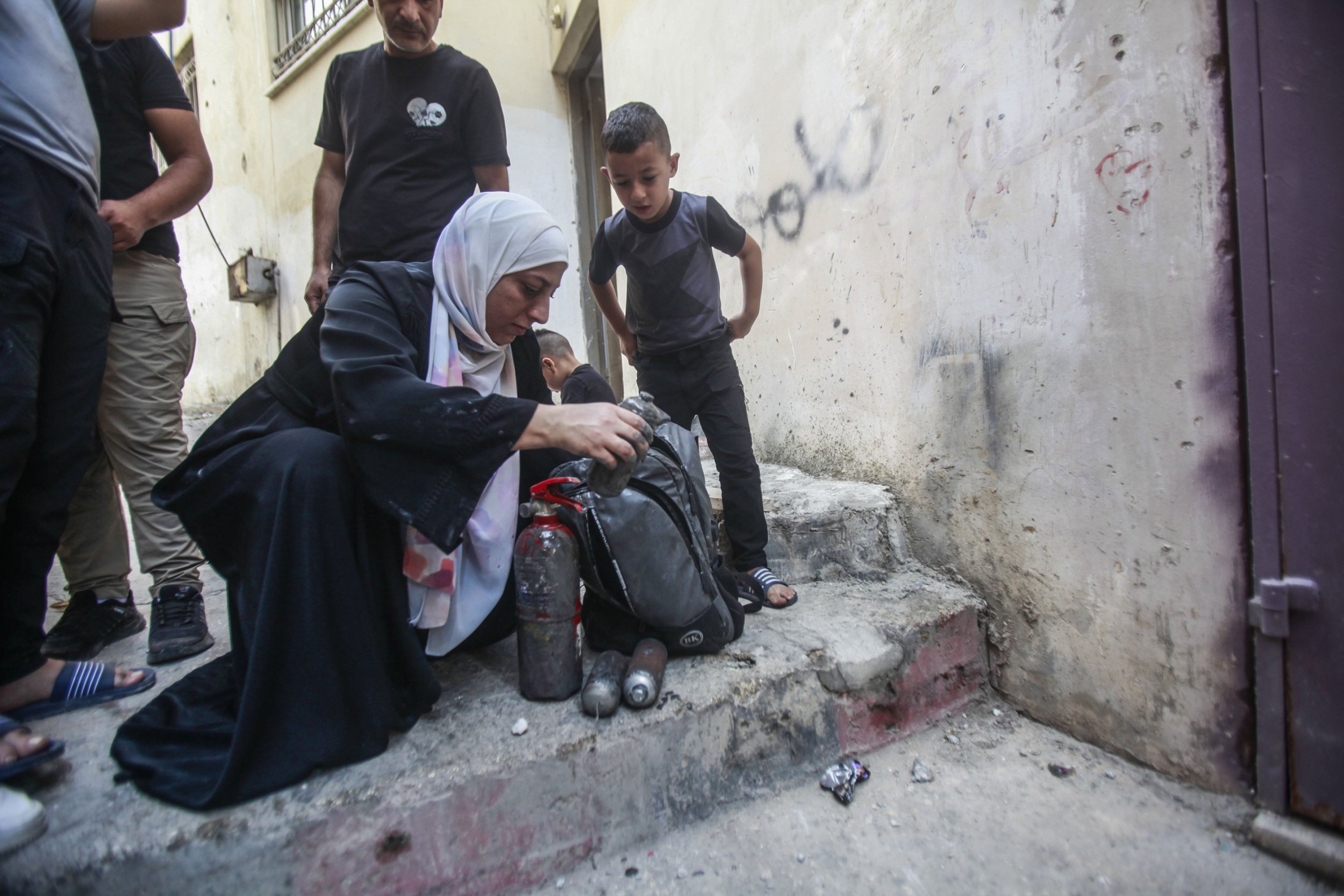
The for an ‘inappropriate’ line of questioning , who said during an interview that Israeli forces were ‘happy to kill children’.
In a recent segment on the BBC News channel, presenter Anjana Gadgil was speaking to former Israeli Prime Minister Naftali Bennett, who led the country for a year up until June 2022.
The two were speaking soon after on July 3 on the , a Palestinian militant stronghold in the Israeli-occupied West Bank.
The incident killed 12 Palestinians in clashes with gunmen.
In the interview, Gadgil said: ‘The Israeli military are calling this a “military operation” but we now know that young people are being killed, four of them under 18.’
She continued: ‘Is that really what the military set out to do? To kill people between the ages of 16 and 18?’

Her guest then challenged her comments, saying it was ‘quite to the contrary’.
‘Actually, all 11 people dead there are militants. The fact that there are young terrorists who decide to hold arms is their responsibility,’ he said.
He added that many of those responsible for terror attacks that had killed dozens of Israelis over the past year had either came from Jenin or had been trained there, saying that ‘all the Palestinians that were killed were terrorists in this case’.
However then Gadgil then went on: ‘’Terrorists, but children. The Israeli forces are happy to kill children.’
Appearing to be taken aback and be offended by her comment, Bennett said it was ‘quite remarkable’ she would make that claim, as ‘they are killing us’.

He then challenged her to define a 17-year-old shooting at her own family, but the journalist refused to be drawn on that.
The interview drew mixed results, but was slammed by some.
The Campaign Against Anti-Semitism tweeted: ‘We will be writing to BBC News regarding presenter @AnjanaGadgil’s repugnant and inflammatory suggestion, made without evidence, that “Israeli forces are *happy* to kill children”.’
‘Such a comment is redolent of the medieval blood libel in which Jews were accused of murdering Christians, and its modern incarnation has no place on BBC News.’
Campaign group Camera UK posted that ‘whatever her intent,’ this language ‘fuels toxic anti-Semitic tropes accusing Jews of murdering non-Jewish children’.

However pro-Palestinian groups on social media threw their support behind her, with some expressing ‘solidarity’.
But the BBC has now issued a statement, saying the line of questioning was ‘not phrased well and was inappropriate’.
‘Across the BBC’s platforms – including the BBC News channel – these events have been covered in an impartial and robust way,’ it began.
‘The United Nations raised the issue of the impact of the operation in Jenin on children and young people.
‘While this was a legitimate subject to examine in the interview, we apologise that the language used in this line of questioning was not phrased well and was inappropriate.’
Since the segment was broadcast on the BBC News channel, Gadgil appears to have deleted her social media profiles.




















